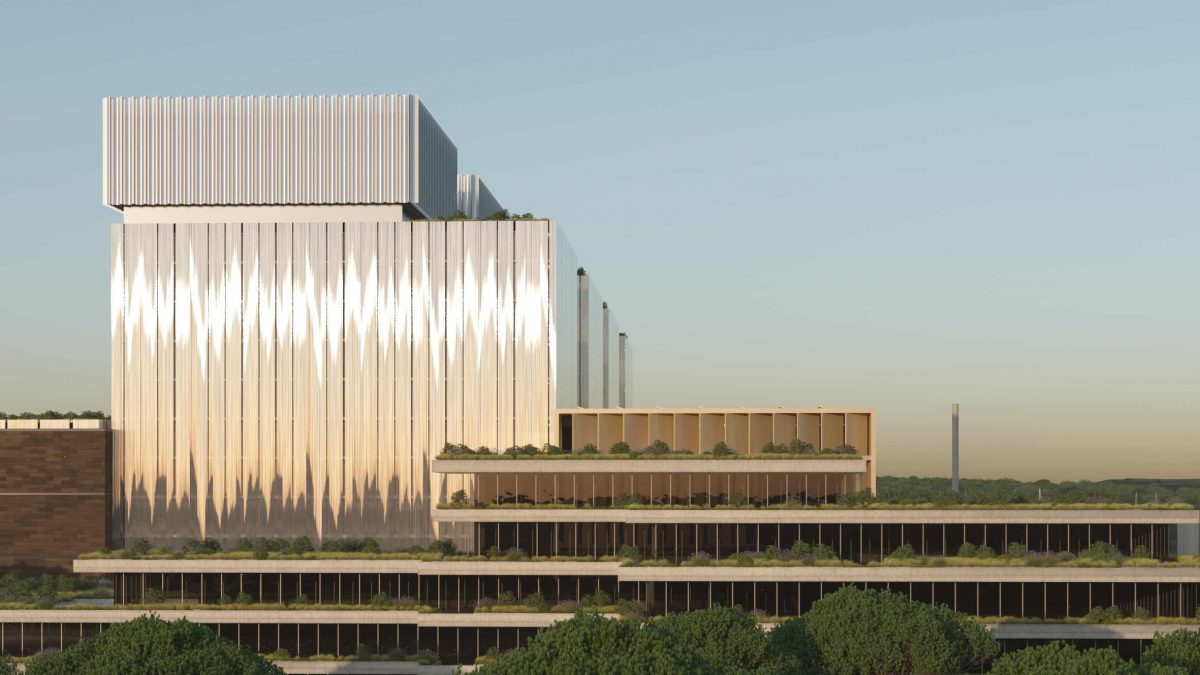Europe’s digital infrastructure is poised for the arrival of a new generation of “Green Giant” data centres. These facilities, drawing hundreds of MW or even over 1GW of power, will be located outside core urban data markets in locations that enable them to be designed and operated for deep life cycle sustainability. They will deliver services at an overall cost up to 25% below that of current best-in-class urban data centres, according to a new report by Liebreich Associates on behalf of Portugal’s Start Campus.
Global data volumes have been growing at over 40% CAGR for the past decade and are expected to grow at around 25% CAGR for the coming decade1. Even before the pandemic drove surging demand for digital services, this growth was placing unprecedented stress on Europe’s existing data centres.
It has become increasingly difficult even for the hyperscalers (companies like Amazon, Microsoft, Google, Facebook, Apple, Alibaba, Tencent, Baidu, IBM and Oracle) to add capacity, particularly in the key “FLAP-D” markets of Frankfurt, London, Amsterdam, Paris and Dublin due to constraints on land, power, water for cooling and skilled labour.
At the same time, the environmental demands being placed on data centre providers are continuing to become more stringent. It is no longer sufficient to buy more green power than is used across a year – clients increasingly expect data centres to cover their needs with green power every minute of every day. Increased attention is also being focused on full lifecycle impacts, including construction, recycling, and end-of-life.
The solution to these pressures lies in the construction of a new generation of European “Green Giant” data centres, which will be:
- Well over 100MW in energy demand;
- Outside the FLAP-D markets, in locations that offer affordable land, power, data connectivity, cooling water, skilled labour, supportive stakeholders and expansion potential;
- In regions that offer large-scale cheap renewable power, ideally of two or more renewable types in order to facilitate hour-by-hour matching with workloads throughout the year, with a meaningful proportion connected via direct/private wire to minimise use of networks and avoid charges;
- Deeply integrated into the regional energy system — driving the construction of additional renewable power capacity, providing ancillary power services and monetising waste heat output;
- Resilient, through a combination of on- and off-site zero-carbon power storage, along with connections to key nodes of the national high-voltage transmission grid;
- Located to reuse or repurpose existing infrastructure — such as access, physical facilities, power connections, cooling or natural features;
- Designed for circularity from the start and operated to optimise resource utilisation and sustainability across land, network, power and water.
A good example of the new breed of Green Giants is SINES 4.0©, a new 495MW data centre campus in Portugal, expected to break ground in early 2022, which will benefit from around 1GW of dedicated renewable energy generating capacity.
The site – close to a decommissioned power station with many data and power connection points – will repurpose a number of existing and legacy infrastructure assets, enabling the planned development to deliver hyperscale capacity in a sustainable, secure, and resilient way with extremely low power costs relative to alternatives located in FLAP-D cities. These lower and less volatile power costs are expected to translate into a 20–25% lower overall operating cost vs those available to FLAP-D equivalents. SINES 4.0© will also provide a range of additional benefits to the local power system.
Michael Liebreich, Founder and CEO of Liebreich Associates, said: “Over the past decade, innovations in data centre design and scale have enabled hyperscale providers to meet surging growth in demand for digital services without increasing their total energy demand. However, there is a limit to what can be achieved by ever-larger data centres in Europe’s crowded and constrained urban centres. Green Giants are the logical next step.”
Afonso Salema, managing director of Start Campus and leader of the Sines 4.0© project, said: “Our scale, local renewable resources, integration into the local energy landscape in Portugal and reuse of former coal-fired power station infrastructure means that we can deliver data centre services more cheaply, sustainably, and resiliently than any existing hyperscale data centre in Europe. The future belongs to Green Giants like Sines.”
Report by Liebreich Associates on behalf of Portugal’s Start Campus here

